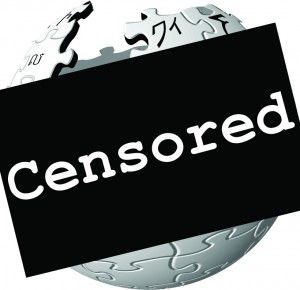The Fundamental Flaws of SOPA and PIPA
A prosperous society is one that is driven by constant change, continuous growth, and expansive knowledge. These factors can only thrive under conditions conducive to openness and transparency, be they in government, private business, or the Internet. It’s hard to imagine that nearly 11 years ago, Wikipedia didn’t exist. This vast resource, a worldwide tool that’s devoted to preserving, expanding, and disseminating global knowledge, by the very virtue of its nature, is constantly adapting to the same forces that drive change in society. While Wikipedia did not exist 11 years ago, the basic institutional and infrastructural foundations that allowed it to exist as it does today did. These foundations have now under attack from two bills in the United States Congress: the Stop Online Piracy Act (SOPA) in the U.S. House of Representatives, and the PROTECTIP Act (PIPA) in the U.S. Senate.
A lot has been written about why SOPA and PIPA are bad pieces of legislation, and so it’s moot to go into specifics here, but it’s worth discussing two fundamental flaws that lie at the core of these proposed bills. These flaws undermine the very core of SOPA and PIPA, should they become law as written, and thus set them up to fail in solving the problems they seek to address. Laws designed to solve specific problems or mitigate harmful situations, as SOPA and PIPA purport to do, are only good if they maintain two attributes: one, they must stand on a solid foundation based in good principle and, two, they must propose efficient solutions that do not cause unintended consequences that are significantly more harmful than the problems they are trying to address. In short, these types of laws must be good in principle and effective in execution. Neither SOPA nor PIPA have either attribute.
When it comes to designing laws based on good principles and doing it in an efficient and effective way, it’s important to ask the right question before seeking to get the right answer. Both SOPA and PIPA ask the wrong question, and thus from the start violate both principles of good and effective laws. These two bills were designed to solve the problem of online piracy of copyrighted materials, such as music and movies, that are hosted on foreign websites (companies already have the power to block domestic websites that host infringing content). To address this problem, proponents of SOPA and PIPA asked, “how can we prevent people in the US from accessing information abroad,” and then proposed ways to block access through means that threaten freedom of speech, stifle online innovation, and hinder open access. That’s akin to proposing to solve the problem of nighttime street crime by forcing everyone to stay indoors at night. The problem of copyright infringement is not end-user mediated, and the solutions to this problem cannot treat it like it is.
As an organization dedicated to enhancing worldwide access to global knowledge through free and open resources, we stand on principle against SOPA and PIPA, but we also recognize the grievances of its proponents. Thus, in the spirit of open and transparent government, we invite both proponents and opponents of SOPA and PIPA to an open discussion regarding the appropriate solutions to the problem of online copyright infringement. We are all swimming in the same ocean, and if we don’t work on solving problems together, an undercurrent of discontent will carry everyone far offshore.
Nicholas Michael Bashour Vice-President Wikimedia District of Columbia